
Innovative solutions for soil and water management for climate action
This session presents an action plan for improving natural resource management to strengthen the resilience of agrifood systems to climate change. Based on the scientific evidence from a series of global dialogues, it will showcase field examples, strategies and management options in integrated soil and water management that have a direct impact on the livelihoods of small- and medium-holder farmers and their communities.
Press release
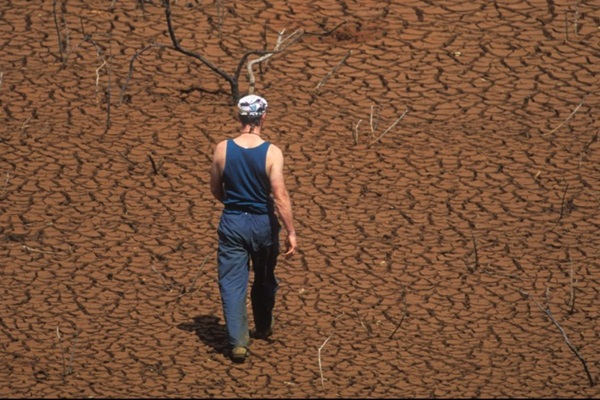
World Food Forum: New technologies help manage soil and water in a climate-change context
Innovations to re-carbonize soils, improve soil health and enhance water use efficiency take centre stage at the Science and Innovation Forum
Speakers
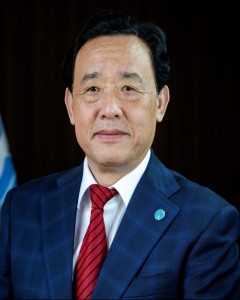
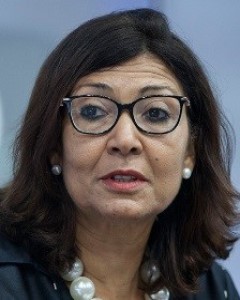
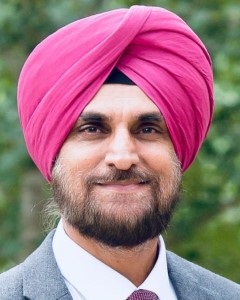
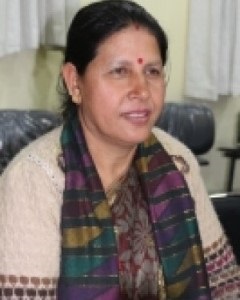
Dr. Qu Dongyu took office on 1 August 2019 as the ninth Director-General of the Food and Agriculture Organization of the United Nations (FAO) and was re-elected for a second four-year term on 2 July 2023.
Before first being elected as FAO Director-General, Dr. Qu served as China’s Vice Minister of Agriculture and Rural Affairs (MARA), where one of his achievements was to promote inclusive and innovative development and make sure information and communication technologies (ICT) were available in rural areas so that more than 400 million farmers could use their smartphones as a new farming tool. Another national initiative led by Dr. Qu was to improve reporting of wholesale prices for agricultural products in China and foster the establishment of more than 100 specialty production areas geared to making local comparative advantages work to the benefit of local farmers.
Born in 1963 to a rice-growing family in China’s Hunan Province, Dr. Qu studied horticultural science at Hunan Agricultural University and then plant breeding and genetics at the Chinese Academy of Agricultural Sciences. He later added environmental science to his knowledge portfolio while earning a PhD at Wageningen University, in the Netherlands.
Maria Helena Semedo, FAO Deputy Director-General, is an economist and politician from Cabo Verde. A leading expert in global development issues, she has worked in public service for over thirty years. She promotes an integrated, inclusive approach, resulting in greater cross-sectoral engagement and stronger strategic partnerships, better positioning FAO in its role to promote a transition to sustainable food and agriculture systems.
Before taking up her current duties in 2013, Ms Semedo served as FAO Representative in Niger, then as Deputy Regional Representative for Africa and Sub-regional Coordinator for West Africa. Prior to her international career, she was Minister for Fisheries, Agriculture and Rural Affairs from 1993 – the first-ever female minister in her country; and later Minister for Tourism, Transportation and Marine Affairs from 1995 to 1998, and then a Member of Parliament until 2003.
Dr Amarjit is the Director and Chief Scientist at OCP North America. Prior to joining the OCP Group in 2019, he has worked as scientist and advisor at Larta Institute, Plant Impact, Syngenta and Monsanto. He holds a PhD on plant physiology and biochemistry. He is an innovative crop efficiency scientist with significant experience focused on optimization of plant performance, contributing broadly to yield enhancement and stress resilience technologies via agronomic, biotech, chemistry, genetic, metabolic and plant physiology approaches. Dr Basra has published and co-published over 100 publications and is the Editor-in-Chief of several books and journals.
Mina Dhakal is Vice Chairperson Nepal Agriculture Cooperative Central Federation Limited (NACCFL), which is an apex organization of agriculture based cooperatives in Nepal. She has expertise in more than 20 years of successful and progressive project planning/management/implementations/monitoring and evaluation experience on cooperative, agriculture, energy, value chain and agro-cooperative, organizational and system development, livelihoods improvement; gender and social inclusion. Ms Dhakal Hold Master’s degree; Botany from Tribhuvan University, Nepal and another degree in Environmental Science and Technology form, IHE Delft The Netherland and Sustainable ecosystem management from, Brown University, USA.
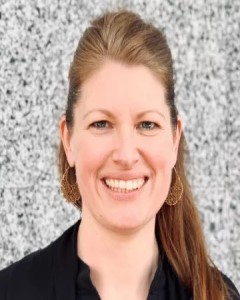
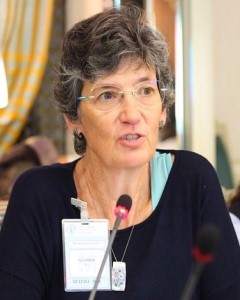
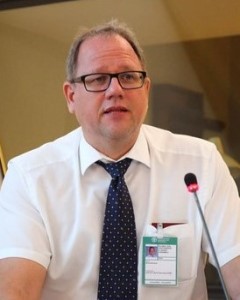
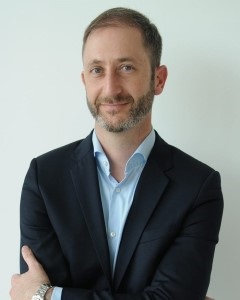
Malin is Programme Manager and Team Lead Water for Resilient Landscapes at Swedish Water House. She joined SIWI in 2019, leading the working on the links between water, landscapes, biodiversity, and climate change. Malin is the chief editor of the report "The essential drop to Net-Zero: Unpacking freshwater's role in climate change mitigation". Prior to joining SIWI, Malin was coordinating Agroforestry Network and the multidisciplinary research network Focali at Gothenburg University. She has field experience from lowland rainforest in Borneo, savannas of Southern and Eastern Africa and Swedish boreal landscapes.
Rosa is an agricultural engineer and holds MSc and PhD degrees in Soil Science. She is a professor of Soil Science and Head of the Micromorphology Lab at the University of Lleida. Her research fields are soil genesis and micromorphology, soil degradation and conservation, and watershed hydrology among others. Her geographical frame is the semiarid Mediterranean, but she has also worked in tropical, temperate, mountain, and desert environments. She has authored or co-authored over 100 publications and is an Honorary Member of the International Union of Soil Sciences. She is the Chair of the Intergovernmental Technical Panel on Soils since 2018.
Prior to joining CRS in 2010, he was regional coordinator at the International Center for Tropical Agriculture (CIAT) in Managua, Nicaragua. He has published over 30 peer-reviewed scientific articles, and his research focuses on integrated soil and water management at watershed level for improved agricultural productivity.
Chief Executive Officer, Bioceres Crop Solutions
Federico is a biochemist with a Ph.D. in Crop Sciences from the University of Illinois at Urbana-Champaign. Federico joined Bioceres in 2005, initially as a research leader for one of its R&D projects, he then helped organize and run Bioceres’ biotech center, a state-of-the-art technology incubator called INDEAR. In 2011 he became the first formal CEO of Bioceres.
In 2018 Federico was recognized with the Konex award for business innovation for the period 2008-2018. He also received the EY Entrepreneur of the Year Award for Argentina in 2019. Also, since 2019 Federico has been Chairman of the Argentine Chamber of Biotechnology.
